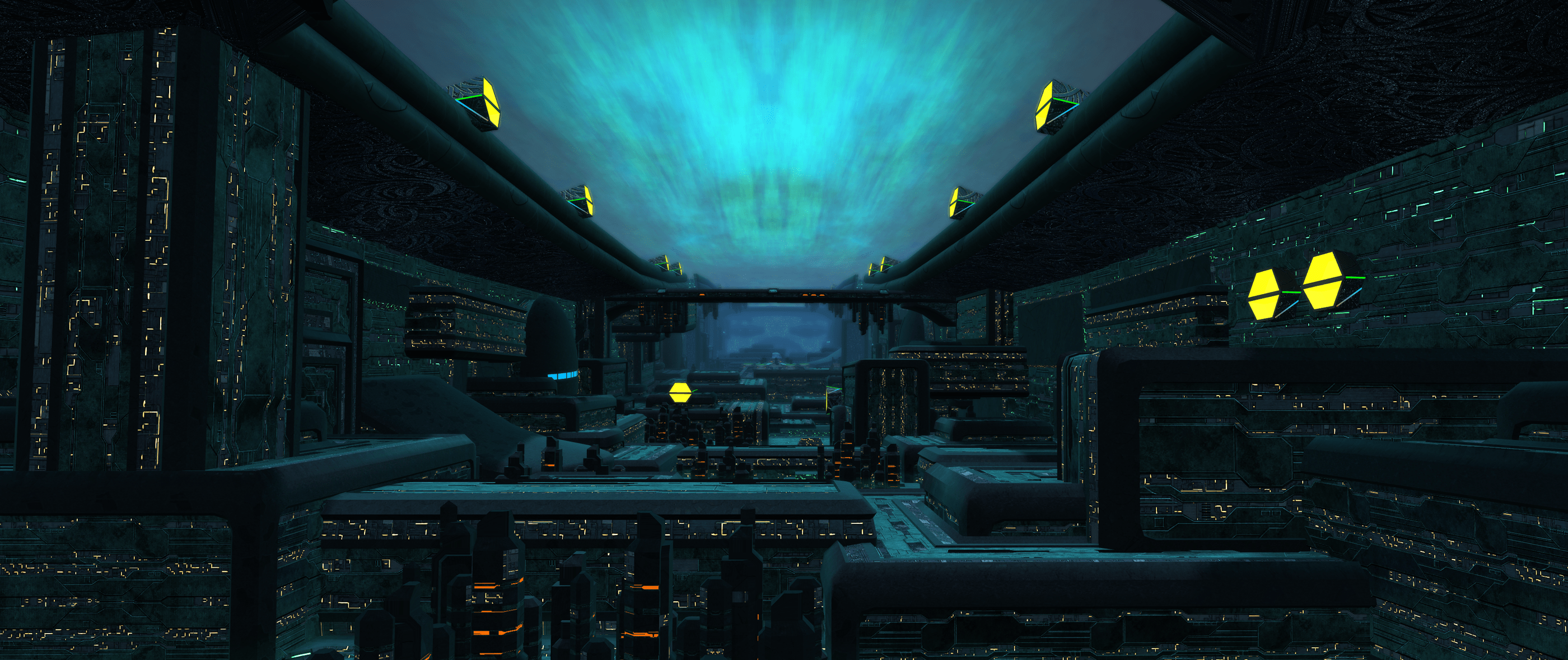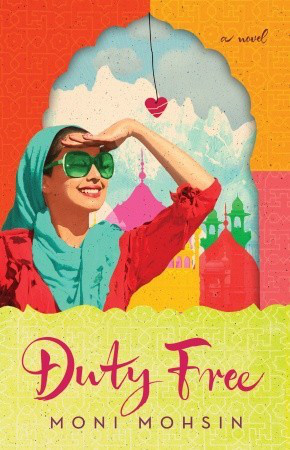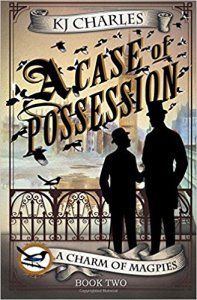Maya’s Notebook
Isabel Allende
 At the height of the War on Drugs a dramatic television commercial appeared. Perhaps you’ve seen it.
At the height of the War on Drugs a dramatic television commercial appeared. Perhaps you’ve seen it.
A young woman held a frying pan and spoke about your brain on drugs . Then suddenly, with no warning, she started swinging the pan, destroying everything in the kitchen as she recited a litany of all the destruction drug use would bring.
You might take away any number of messages from the spot. There’s one I do, probably not intended by its creators, that I think about more and more. Simply stated, it’s that the reality of our existence is fragile.
Maya Vidal, the escritora of this cuaderno, can testify to that first-hand.
When we first meet Maya it is August and the dead of winter. She arrived a week ago on an unnamed island in the Chiloé Archipelago, a remote part of Chile. Remote deserves some perspective. Chiloé is further south than Buenos Aires, Johannesburg or Sydney. Maybe New Zealand is as remote. We are now in the Southern Hemisphere, so everything is upside down and backwards.

Chiloé in winter, a long way from anywhere.
The main island is 700 miles south of Santiago, a 2-hour flight but, because she has lost her plane ticket, a 12-hour bus ride for Maya. Why is this young woman, a daughter of Berkeley and all of 19-years old, on her way to such a distant locale? And who, if anyone, is she on her way to see?
These are not unrelated questions although there is a simple answer to the first: her grandmother, her Nini, emigrated to Canada from Chile before arriving in California‘s loopiest city. She will be staying with an old friend of nini‘s, Manuel Arias.
There is also a more complicated answer to the initial question. In the novel’s very first sentence Nini tells Maya not to make contact with anyone she knows until “[her] enemies were no longer looking for [her].” Late stage adolescents don’t typically have enemies of the sort that force one to flee to the ends of the earth.
Nini knows exactly where she has sent Maya. “You’re going to have time to get bored…” she tells Maya as she puts her on the plane to Santiago at SFO.
I’d be remiss if I didn’t dwell on Nini for a bit. She is one of the great comic characters in literature. Yes, I’m willing to go out in a limb and say this novel will take its place as literature.
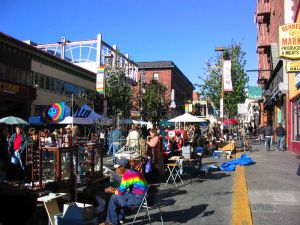
Telegraph Avenue in the People’s Republic of Berkeley, Maya’s hometown.
She is also the woman who has raised our heroine and is the model for a different type of strong, independent woman. I use that last adjective despite the fact that she is devoted to her husband, Maya’s dear poppo, an astronomer that she basically kidnapped and wed.
We learn about this, and the events that have sent Maya thither, in flashback, over the course of a year or so in Chiloé. You’d think there’s not much to happen in such a remote locale but there is. Maya needs to learn about people again and there’s no better place than a community–the real thing, where people have to learn how to live together by accepting each other for who and what they are.
And what a community. In the great tradition of Cicely, Alaska and Macondo, Columbia, the island is populated by gentle eccentrics: a kindly priest, a rich benefactor, the schoolteacher who is also principal and something of a spirit mother, a centenarian pot grower, and Maya’s host, a possibly-self-exiled anthropologist writing a book about the local folklore.
A lot of what I suspect to be long-standing Allende fascinations can be found woven throughout. Her enchantment with things magical and spiritual is nicely divided between Manuel Arias and Blanca Schnake, the aforementioned educator and daughter of the patrón, Don Lionel. The recent history of Chile is here, of course. Home, family and nature abound, too.
There is also a great deal of humor. Much of it is low-key but some is laugh-out-loud silly. By the time Maya gets on the boat to the island where she’ll be staying she has acquired a canine companion, Fakheen. Despite the faint Arabic overtones, the dog’s name derives from Latin American ears mishearing the all-purpose, all-American curse-word beginning with ‘f’.’

There are penguins in Chiloê, but not the novel.
I’ve already mentioned Nini, a whirlwind of contradictions who could only be at home in a town like Berkeley. Just when you have her figured out she throws you for a loop. It’s not just her relationship with Maya’s poppo. It’s the exceptions to the politically correct liberal California ethos and the improbabilities–the cab driving and the kidnapping and the conspiring and the deep friendship with a wheelchair-bound amateur shamus she sleuths with.
Nini‘s heart is what underpins this family. When it breaks, when poppo dies, the governor comes off the flywheel. So great and blinding is Nini‘s grief that she cannot see Maya’s despair. A precocious teen, Maya finds herself on an all too familiar path to addiction. Her trip to the bottom is harrowing and, at times, life-threatening and plays a big role in why Maya, too, is in exile.
Within that exile Maya begins to rebuild herself and make connections with people, some of which bear astonishing revelations. Maya goes to great lengths to learn why Manuel is in this lost place and winds up taking a crash course in the history and aftereffects of the 1973 coup.
That coup included the death of Allende’s cousin, Salvador Allende, the President of Chile, at the hands of the army. The scenes from that time do not dominate but they are powerful. And they help explain a lot of things including voluntary and involuntary exiles.
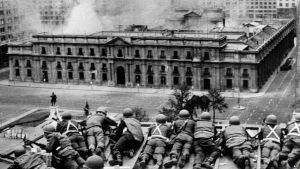
The Moneda Palace under attack in Santiago, Chile 1973. Before mindlessly using words like coup people should think about what that means.
As with Maya’s descent into self-destruction the coup and its aftermath show just how fragile reality is. Even 35 years later people do not speak openly of it because the wounds are so deep, the realities so altered.
Ignorant people who loosely throw language around to make cheap political points don’t understand what words like coup really mean. Until they are besieged or see their compatriots tortured and killed they should mind their words. I doubt they ever will, shameful as that is.
The book is divided into sections that reflect the seasons and ends with what’s described as an eventful December. That’s a fair description. There’s just enough ambiguity, in the end, to make the working out work out.
Reality is indeed fragile and while we must mind that, I think, too, we must remember to retain some hope. Because without hope it really is a race to the bottom.
It’s Christmas Eve. In the spirit of the season I wish you peace.
Advertisements Share this:


